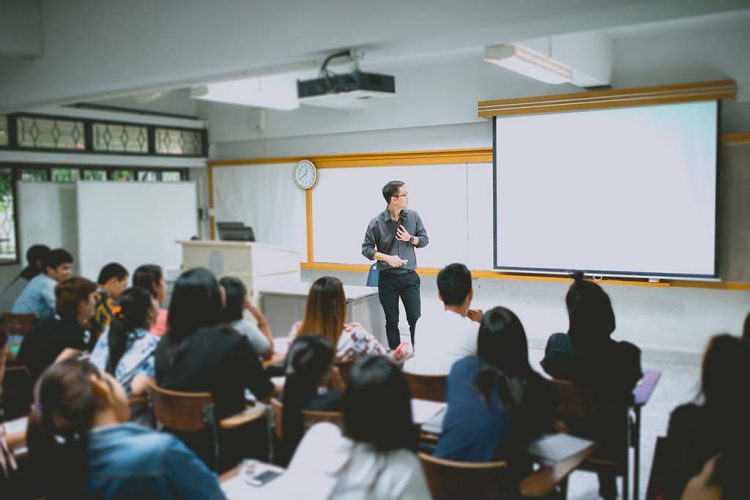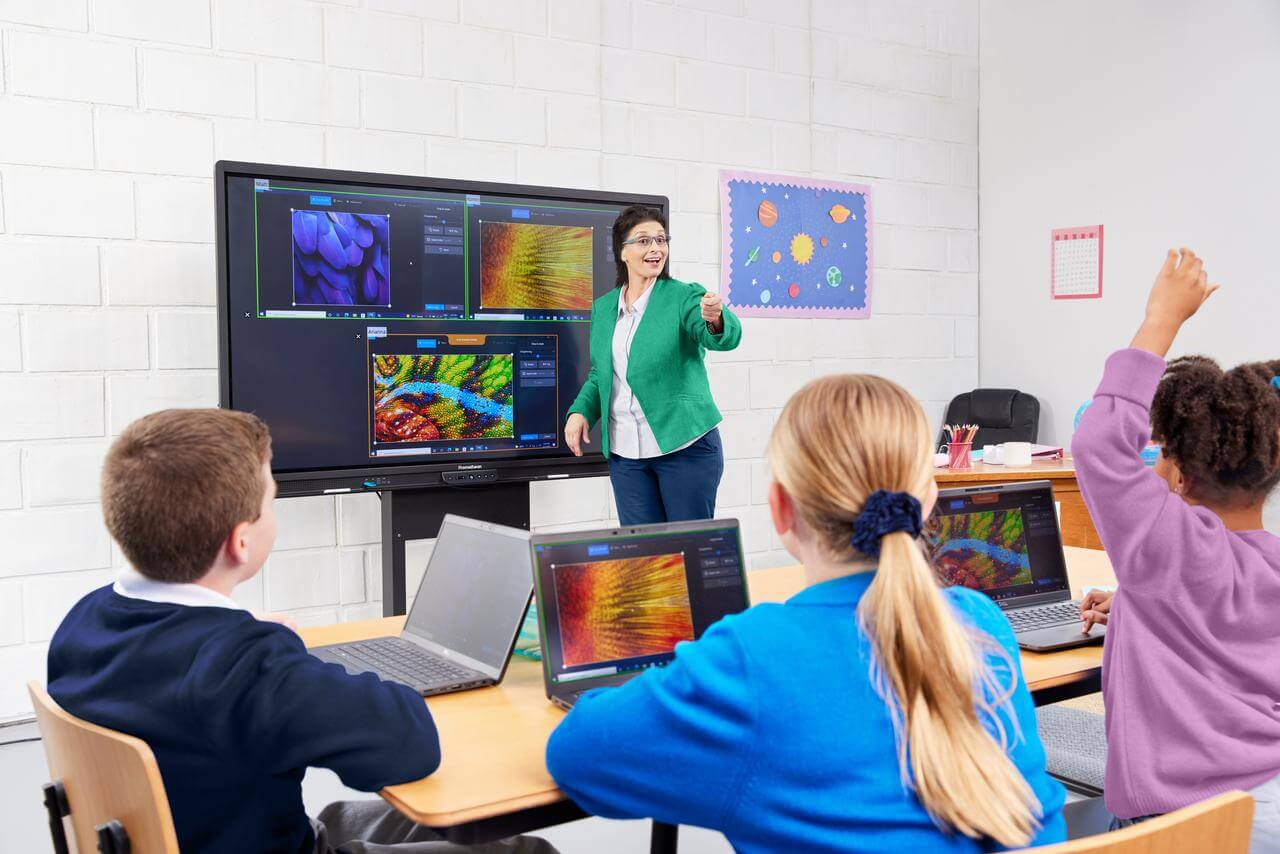Comprehensive Primary Science Tuition Singapore for Primary School Students
Comprehensive Primary Science Tuition Singapore for Primary School Students
Blog Article
Checking Out the Various Mentor Strategies in Key Scientific Research Education Today
Inquiry-based discovering, hands-on experiments, and the integration of technology are redefining just how educators engage young minds. Furthermore, joint techniques and separated guideline are being used to cater to the diverse requirements of students, improving both interaction and understanding.
Inquiry-Based Learning
Inquiry-Based Understanding (IBL) is an instructional method that encourages trainees to explore scientific ideas with doubting, investigation, and hands-on experimentation. This method stresses the function of trainees as active participants in their understanding, advertising essential thinking and analytical abilities. By engaging with real-world questions, students end up being curious and determined, which improves their understanding of clinical concepts.
In IBL, teachers serve as facilitators, assisting students as they browse their inquiries instead of delivering info straight. This student-centered technique enables differentiation, fitting different learning styles and speeds. Trainees establish abilities in creating theories, designing experiments, and evaluating data, which are important for scientific proficiency.
Furthermore, IBL fosters cooperation amongst pupils, encouraging them to share concepts and searchings for. This cumulative questions advertises social skills and a feeling of community within the class. The procedure of inquiry urges resilience, as pupils learn to welcome failing as a stepping rock towards understanding.
Hands-On Experiments
Hands-on experiments are an essential part of efficient science education, complementing the principles of inquiry-based discovering. These experiments enable trainees to involve straight with clinical ideas, fostering a deeper understanding with experiential discovering. By adjusting materials and observing end results, young learners can realize abstract concepts in tangible methods.
Such tasks advertise vital thinking and analytical skills, as students assume results, conduct experiments, and assess outcomes. This process urges them to ask questions, fine-tune their understanding, and create a scientific attitude. Furthermore, hands-on experiments can be customized to varied discovering designs, making sure that all trainees have the opportunity to involve meaningfully with the content.
In addition, hands-on experiments frequently encourage collaboration among peers, advertising synergy and communication skills. Functioning in teams allows trainees to share concepts, discuss searchings for, and discover from each other, which enhances their total academic experience.
Integrating hands-on experiments into the primary scientific research curriculum not only enriches the finding out atmosphere however additionally cultivates a lifelong interest in scientific research. By proactively taking part in their education, trainees are extra most likely to create an enthusiasm for scientific questions that prolongs past the classroom.

Technology Combination
Incorporating innovation into main scientific research education and learning has actually become increasingly essential in fostering pupil involvement and boosting discovering end results. Making use of digital devices, such as interactive simulations, virtual labs, and educational software program, gives trainees with opportunities to explore scientific concepts in innovative ways. These sources promote a deeper understanding of complicated topics by enabling learners to visualize and control variables that would certainly be not practical in a traditional classroom setting.
Furthermore, technology integration motivates customized learning experiences. Students can progress at their own speed, reviewing challenging concepts via multimedia resources, which deal with different discovering designs. This adaptability not just sustains private development yet additionally grows a sense of autonomy in students.
In addition, innovation functions as a bridge to real-world science, linking trainees with current study and specialist payments. Accessibility to on the internet data sources and scientific journals widens trainees' perspectives on scientific query and fosters essential assuming skills.
Collaborative Knowing
Collective knowing plays an important duty in primary scientific research education by promoting synergy and communication abilities among pupils. This strategy encourages learners to function with each other, share expertise, and engage in analytical, which boosts their understanding of scientific ideas. By joining group activities, pupils learn to articulate their ideas, pay attention to diverse perspectives, and negotiate options, every one of which are necessary abilities in both academic and click to investigate real-world contexts.

Study indicates that collaborative understanding can lead to increased motivation and involvement in scientific research topics, as trainees find satisfaction in shared experiences (primary science tuition Singapore). Additionally, this technique prepares students for future joint undertakings, furnishing them with the abilities essential for efficient team effort in college and professional environments. Inevitably, embracing collective discovering in key science education can dramatically enrich the learning experience and advertise a deeper understanding of scientific inquiry
Separated Instruction

Set apart guideline can show up Look At This in different methods, such as varying the web content, processes, or items of knowing. For example, instructors might make use of tiered jobs that offer varying levels of intricacy, allowing pupils to function at their corresponding readiness levels. Furthermore, versatile organizing methods can facilitate cooperation among students with various capacities, promoting peer learning.
Analysis plays a crucial role in this strategy, as it informs direction and assists teachers comprehend each trainee's one-of-a-kind demands. Developmental analyses, such as quizzes and monitorings, can direct instructors in changing their methods to improve finding out results. primary science tuition Singapore. Ultimately, by implementing differentiated guideline in primary scientific research education, educators can cultivate an extra effective and equitable knowing environment, empowering all trainees to reach their full possibility in recognizing scientific phenomena
Conclusion
In summary, the diverse training techniques in main science education, including inquiry-based learning, hands-on experiments, modern technology integration, collaborative knowing, and differentiated direction, collectively add to a much more reliable learning atmosphere. These approaches promote important thinking, problem-solving skills, and a deeper comprehension of clinical ideas. By applying these techniques, educators can create appealing and helpful classrooms that attend to the different needs of trainees, eventually cultivating a long-lasting rate of interest in scientific research and boosting academic achievement.
Inquiry-Based Learning (IBL) is an instructional method that encourages trainees to explore scientific principles via questioning, examination, and hands-on testing.Joint discovering plays an essential function in main science education by promoting teamwork and communication skills among students.Study indicates that joint learning can lead to boosted motivation and engagement in science subjects, as students discover satisfaction in here are the findings common experiences.In cultivating a comprehensive knowing environment, set apart guideline emerges as an essential approach to fit the diverse requirements and capabilities of pupils in main scientific research education. Inevitably, by carrying out set apart guideline in main science education and learning, instructors can grow an extra effective and fair learning environment, equipping all students to reach their full capacity in understanding clinical sensations.
Report this page